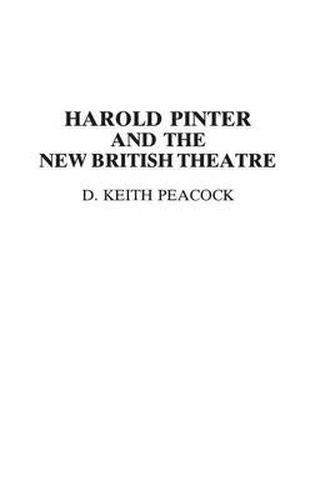Readings Newsletter
Become a Readings Member to make your shopping experience even easier.
Sign in or sign up for free!
You’re not far away from qualifying for FREE standard shipping within Australia
You’ve qualified for FREE standard shipping within Australia
The cart is loading…






Harold Pinter is universally described as Britain’s leading dramatist . This book evaluates the justification for this appellation. It examines his work in relation to changes taking place in the New British Theatre after the so-called theatrical revolution of 1956, and draws attention to those autobiographical experiences that have been transmuted into his art. Beginning with a look at the nature of British theatre prior to 1956, Peacock then describes Pinter’s early life in the East End of London, his career as an actor, and his early writing. The discussion follows Pinter’s life and work from The Room in 1957 to his most recent play, Ashes to Ashes in 1996. The author argues that although Pinter has not instigated an aesthetic revolution, he has, more significantly, through his representation of human behaviour, provoked a new way of viewing the world.
$9.00 standard shipping within Australia
FREE standard shipping within Australia for orders over $100.00
Express & International shipping calculated at checkout
Harold Pinter is universally described as Britain’s leading dramatist . This book evaluates the justification for this appellation. It examines his work in relation to changes taking place in the New British Theatre after the so-called theatrical revolution of 1956, and draws attention to those autobiographical experiences that have been transmuted into his art. Beginning with a look at the nature of British theatre prior to 1956, Peacock then describes Pinter’s early life in the East End of London, his career as an actor, and his early writing. The discussion follows Pinter’s life and work from The Room in 1957 to his most recent play, Ashes to Ashes in 1996. The author argues that although Pinter has not instigated an aesthetic revolution, he has, more significantly, through his representation of human behaviour, provoked a new way of viewing the world.